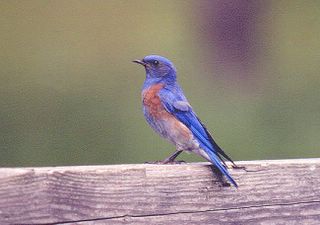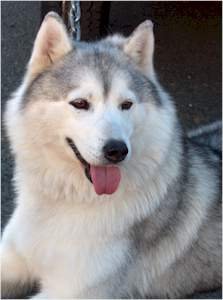If dogs could speak...
Thursday, June 30, 2005
Doggie Bloggie
woof woof woof woof woof woof woof woof woof woof woof woof woof woof woof woof woof woof woof woof woof woof woof woof woof woof woof woof woof woof woof woof woof woof woof woof woof woof woof woof woof woof woof woof woof woof woof woof woof woof woof woof woof woof woof woof woof woof woof woof woof woof woof woof woof woof woof woof woof woof woof woof woof woof woof woof woof woof woof woof woof woof woof woof woof woof woof woof woof woof woof woof woof woof woof woof woof woof.

Click on picture for a larger view
woof woof woof woof woof woof woof woof woof woof woof woof woof woof woof woof woof woof woof woof woof woof woof woof woof woof woof woof woof woof woof woof woof woof woof woof woof woof woof woof woof woof woof woof woof woof woof woof woof woof woof woof woof woof woof woof woof woof...
Monday, June 27, 2005
Format Apologies
I am not sure what happened to the blog layout, causing posts to be pushed down to below the sidebar (and I have a long sidebar, heh). I certainly haven't done anything to the template itself. It will be at least a few days before I can work on it, and I hope I can figure it out. In the meantime, please bear with me. I hate this new look too.
I'll take two
The latest cost of living survey published by Mercer Human Resource, a British consulting firm, showed that Tokyo and Osaka, Japan, are the two most expensive cities in the world. The study looks at 144 cities across six continents and measures the comparative cost of over 200 items in each location, including housing, transportation, food, clothing, household goods and entertainment. It is often used by multinational companies and governments to help determine compensation allowances for their expatriate employees.
Compared to New York City, Tokyo was found to be 35% more costly while Los Angeles and San Francisco were about 15% cheaper. And that apparently doesn't cover the price of watermelons. Including melons, Japan living apparently would be at least 50 times more expensive.
Saturday, June 25, 2005
Wikiporky
An avalanche of pornography has forced the Los Angeles Times to abandon an experiment in free-form editorials. Last Friday, the newspaper introduced an online feature it called a "wikitorial." Readers were invited to contribute to an editorial, "War and Consequences" on the Iraq war, using an open-source software that allowed multiple users to write and rewrite a single Web page. The model was based on Wikipedia, the online encyclopedia where anyone can add facts or update information.
The original essay argued for the U.S. to set goals for training Iraqis to replace U.S. troops in Iraq and for the firing of Defense Secretary Donald Rumsfeld if those goals were not met. But within two days, the paper was forced to shut the feature down after some readers repeatedly saturated the site with foul language and pornographic images. The wikitorial software allowed readers to post without checking by editors, who could remove posts only after they appeared. Initially a web master was assigned to keep the site clean, but the task quickly became overwhelming when obscene material kept pouring in. It just goes to show that porn supply is infinite. The site shutdown announcement didn't clearly show the position favored by porn writers, but I think they were "pro-Bush."

Thursday, June 23, 2005
Plump, succulent, square melons
Farmers in Zentsuji, Japan, have started their annual sales of square watermelons. These novelty fruits were introduced in 2001 when the farmers came up with a clever way to force watermelons to grow into a square shape. The melons were inserted into square containers made of tempered glass while the fruits were still growing on the vine. The boxes are the exact dimensions of Japanese refrigerators, allowing full-grown watermelons to fit conveniently and precisely onto refrigerator shelves.
This year, about 800 of the melons were grown and will be shipped, mostly to Tokyo, Osaka and China. They sell for 10,000 yen each (about $90), which is 5-6 times more expensive than regular, round watermelons in Japan, but still quite a bit cheaper than the special Densuke melons that cost the equivalent of $2600 each. I now dream of nice stacks of juicy and square melons.

Tuesday, June 21, 2005
Stoney, get out of my head
Arghh... Of all of the things that occupy my puny brain, now this. It started out innocently enough. I was browsing a web site about dogs, and they were playing this song that for some reason, I haven't been able to get off my mind. This wasn't one of those electronic midi songs you find so often on the web but a real live song so it caught my ears right away. But beyond that, it was just so earnest, gentle and sappy. The first time I heard it, it was a catchy tune; the second time I started paying attention to the lyrics; the third time I was humming along, and I was hooked.
I've just ordered a CD from amazon, The Best of Lobo for this song "Stoney." It will be here next week. Just in case you are wondering, the disc also contains such gems as "Me and You and a Dog Named Boo," (It really was a doggie site,) "Where Were You When I was Falling in Love," "Day in the Life of a Love," and "I Don't Wanna Make Love Anymore" (yikes!) All that for $5.98 with free shipping. Below are the lyrics for "Stoney." You have been warned.

I've known her since we both were kids
I recall the silly things we did
She would want to ride upon my back
To keep from stepping on a crack
I didn't think of it back then
But even when she did not win
She was happy just to play
Stoney liked to live out every day
Stoney, happy all the time
Stoney, life is summertime
The joy you find in living every day
Stoney, how I love your simple ways
The times when no one understood
Seems that Stoney always would
We'd walk for hours in the sand
She would always try and hold my hand
Stoney, happy all the time
Stoney, liked the summertime
The joy you find in living every day
Stoney, how I love your simple ways
Now, I don't recollect the time
I fell in love with this old friend of mine
Or when I first saw in her eyes
What she tried so not to hide
Stoney, happy all the time
Stoney, liked the summertime
The joy you find in living every day
Stoney, how I love your simple ways
Stoney, happy all the time
Stoney, liked the summertime
The joy you find in living every day
Stoney, how I love your simple ways
Stoney, happy all the time
Stoney, liked the summertime
The joy you find in living every day
Stoney, how I love your simple ways
Sunday, June 19, 2005
You can't read this
Only in Japan does competition get so fierce to make everything smaller. I certainly understand the desire to shrink computer chips and electronic gadgets like cameras and cell phones, but pens? Yes, pens that can write the thinnest lines. The current record holder is Mitsubishi, which released 0.18-mm ball point pens in January.
Mitsubishi and Pilot have been leapfrogging each other for the last two years. For most of 2004, Pilot claimed to have the sharpest pens at 0.25 mm that could write 36 kanji characters in a space the size of a fingernail. Until now. The picture below shows the new Mitsubishi pen spelling the word "rice" on a single grain of rice. I am glad we eat hamburgers instead of rice. And I bet I can write an entire haiku on a Big Mac too.

Saturday, June 18, 2005
"Working" out
A researcher at the Mayo Clinic in Rochester, Minnesota, has come up with an ingenious office set-up to help people lose weight at work. The unit is part treadmill, part desk, part computer terminal. Office workers would walk on this treadmill while they talk on the phone or work on the computer. The speed is 1 mile per hour, slow enough that you wouldn't be breaking a sweat, but fast enough to burn 100 calories per hour, equivalent to 50 lbs of weight loss a year, other things being equal.
That's the ultimate in forced labor, and walking not just to work, but also at work. The workstation is relatively cheap, about $1000 or half the average cost of a work cubicle. It will be available commercially whenever the Mayo people get off their lazy butts and license the design to office furniture manufacturers.

The inventor is Dr. James Levine who does anti-obesity research at Mayo. He said that the idea came to him because he hates going to the gym. He runs the NEAT laboratory where they study "Non-Exercise Activity Thermogenesis," or the energy people burn during everyday activities such as standing, walking or just fidgeting. Earlier this year they discovered that obese people sit on average 150 minutes more and therefore exert 350 fewer calories each day than lean people. This was determined by having volunteers wear special underpants that monitor body postures and movements every half-second for 10 days straight. The report did not state whether men showed more "movement" than women when they got together to compare data for research.
Thursday, June 16, 2005
Plump, succulent melon
A 18-lb watermelon was recently sold for $2600 at a Japanese auction. The fruit is an unusual black-skinned variety called "Densuke" and is a delicacy grown in the village of Toma in northern Japan. It comes in a specially decorated box and is probably delivered by armored cars. And it'd better be seedless.

Wednesday, June 15, 2005
The end of the end
This is what happens when a company goes under. First they get de-listed from the stock exchange, losing even their stock symbol, then the share price drops to 10 cents and finally trading practically stops altogether.

The company is Proxim in Sunnyvale, California. Until last month, they still called themselves a global leader in wireless networking equipment for Wi-Fi and broadband wireless networks. The beginning of the end occurred a few years ago when they filed a patent infringement suit against a competitor, got countersued then lost the lawsuit. In October 2004, they had a 1-for-10 reverse stock split to keep share prices above $1, but nothing could prevent the company from sinking further. Last week they declared bankrupcy and sold their assets away. There are so many dreadful chapters in the business of Silicon Valley, but this is probably one of the saddest to watch.
Tuesday, June 14, 2005
Time flies when the job sucks
Last week Gary Daichendt, president and chief operating officer at Canadian telecommunications company Nortel Networks, resigned due to differences with Chief Executive Williams Owens. Daichendt served less than three months on the job, joining Nortel from Cisco Systems on March 14. Compare the two announcements below.
June 10, 2005
Nortel Announces Senior Management Changes
TORONTO – Nortel Networks Corporation today announced the resignation of Gary Daichendt, president and chief operating officer of the Company and Nortel Networks Limited, effective June 10, 2005. Bill Owens, vice chairman and chief executive officer, will assume these responsibilities."Gary has made a major contribution to Nortel during his time here and has added value to our strategic initiatives and business plan," said Owens. "It has become apparent to Gary and me, however, that we have divergent management styles and our business views differ. I respect him for his decision and I wish him every success in his future endeavors."
March 14, 2005
Nortel Announces Senior Management Appointments
Bill Owens Appointed Vice Chairman and CEO; Gary Daichendt Appointed President and COO
TORONTO – Nortel Networks Corporation announced that its Board of Directors has made senior management changes designed to strengthen the Company’s leadership team, drive global operational excellence and position Nortel for the future. Bill Owens, president and chief executive officer, will continue to drive the strategic direction of the Company while dedicating new senior executive talent to Nortel’s global operations and related functions.
To that end, Owens will become the vice chairman and CEO effective March 14, 2005. The Company further announced the appointment of Gary Daichendt to the position of president and chief operating officer, reporting to Owens. Daichendt is a senior executive with more than 30 years of experience in the global technology industry and was previously executive vice president, Worldwide Operations, Cisco Systems. Daichendt’s appointment is also effective March 14, 2005.
“We are playing to win,” Owens said, “and Gary will play a critical role in our doing so. He is a world class leader with unquestioned integrity and one of the top technology executives in the world. Gary’s deep involvement in the spectacular growth of some of the world’s leading technology powerhouses and his unique track record have given him a special perspective and experience that will optimally position our great Company for our customers, shareholders and employees. All of us at Nortel are very pleased with his decision to join us.” In his new role Daichendt will be responsible for leading Nortel’s carrier and enterprise businesses, research and development, services and supply chain functions and global sales and operations.
So the point is:
"Sometimes life is going to hit you in the head with a brick."
Apple CEO Steve Jobs in a commencement speech at Stanford University on Sunday
Sunday, June 12, 2005
Baby Can't Fly
I was working on the computer last week when suddenly I heard a loud thud against the window. I looked and saw nothing on the window. I went out to the backyard and found on the ground a small blue bird, obviously hurt. It appeared that the bird had flown straight into the glass window and injured his wings. He was able to hobble around but couldn't lift himself off the ground. He must have been one of the baby birds that hatched in one of my planters back in April and flew away on Mother's Day. I looked around and didn't see Mom or Dad. Baby was brave and wasn't really afraid of me.
For about a week I have been nursing the little bird back to health (He was way too small for a proper barbeque.) I made a small cage for him out of a cardboard box and lined it with shredded newspaper, and gave him water and some multi-colored birdseed I got from the pet store. He ate quite a lot for such a skinny thing. I remembered that the chicks made quite a racket with Mom around right after they hatched, but this time he was quiet and quite content settling back into his new nest. The past two days he has been well enough to hop around but still couldn't fly, so he moved about purposefully more like a flightless chicken than a graceful bluebird.
The little guy flew away last night. I looked for him this morning but couldn't find him. No goodbye note, no Dear-John letter, but I knew he was back among his kind, exploring the vast skies and tall trees above us all. Take care Birdie, fly high and free, and watch out for glass in your travels.

Saturday, June 11, 2005
A Giant Sucking Sound
74-year-old Fyodor Dobryakov went down to White Lake in Russia one early morning in May to catch fish but the lake was gone. This was a large 48-foot deep reservoir in the village of Bolotnitkovo, about 250 miles east of Moscow, fed by underwater springs, dark, cold and often capped by ice. But that morning, he said, "I heard a noise, and when I looked right, I saw there was an abyss, and the water was rushing into the abyss like mad. The trees were falling into the lake and getting sucked in too."
The authorities were called, then the television stations. Where residents once picnicked and swam, there was now only a huge crater. Dmitry Zaytsev, an officer with the Emergency Situations Ministry who was sent to investigate found that "everything -- fish, water, everything -- got sucked into that hole. And judging by the size of the crater, it must have happened pretty quickly, in a matter of a few hours." Government officials now theorize that a shift in soil underneath the lake opened access to an underground channel that drained the water, estimated from several hundred thousand to more than a million cubic yards, into a subterranean cavern. From there, it may have flowed into the Oka River a few miles away.
I couldn't disagree more strongly. I believe that the water got drained to the other side of the Earth because of excessive oil drilling in Alaska. That explains the recent drop in gasoline prices, from over $2.50 a gallon last month to $2.27 when I filled up my truck yesterday. Of course, prices are still too high, and I hope the oil guys discover a few more Russian lakes to tap into. But they'd better hurry up and be done before the environmentalists find out.
Tuesday, June 07, 2005
Zimbabwe's president denies he's dead
‘When did I die and where?’ Robert Mugabe, 81, reportedly asks aide
(Actual MSNBC headlines, June 7, 2005)

He also promised to let us know when he dies.
In separate news, the U.S. Forest Serice has announced that after an eight-month extensive international search, they have found a new mascot for the campaign "Only You Can Prevent Wilfires." Robert Mugabe will replace the tired old Smokey the Bear starting this summer fire season.
....................

Sunday, June 05, 2005
Bow wow wow
KTF Corporation, South Korea's second largest mobile phone operator, has announced a service that enables dog owners to interpret the sounds of their pets. The users first connect to the Internet with their cell phones and register information such as the breed and age. They then let their dogs talk into the phones, and wait for the phones to analyze the voiceprint of the dogs and return with text message translations such as "I love you," "I am upset," or "Play with me." The service also works in the opposite direction, translating basic typed messages into dog sounds. Each call costs 20 cents after an initial $1 software downloading fee.
This is a great idea to improve communications between dog and man but it seems unnecessarily complicated. In the U.S, we just let dogs blog, but maybe that's just me...

Saturday, June 04, 2005
From Earth to the Sun
Momofuku Ando, at age 96, will step down from his post as Chairman of Nissin Food Products at the end of this month. This is the Japanese company he founded after inventing instant ramen in 1958. The idea came to him one day when he saw a long line of people standing outside a noodle restaurant in a small town and thought, wouldn't it be great to have noodles that could be prepared in minutes, rather than having to wait in line?
For about a year, he got up at 5 a.m. each day and started going around to restaurants for noodle research. Then he'd return home and spend the rest of the day trying to make noodles, often working until 1 or 2 a.m. After many failures, he finally got it right with Japan's first instant noodles which he named "Chikin" ramen. When he noticed that Americans would often put the noodles into a paper cup and use a fork to eat them, he introduced in 1971 his next instant success called Cup Noodles (or "Cup Noodle" in Asian countries; maybe they give you less over there.)
Today some 600 new varieties hit Japanese store shelves each year, and manufacturers are constantly searching for attention-catching flavors. The average Japanese slurps a staggering 45 servings per year. Worldwide, about 50 billion packets are sold annually. If stretched end to end, the noodle strings would run 1.5 billion miles, or 9 times from Earth to the Sun and back. And smell about 200 times stronger than Tacoma.
On behalf of all current and former college students, I would like to wish Mr Ando a happy retirement, and thank him for saving many of us from days of certain starvation. He didn't just invent instant ramen, but gave us an entirely new recipe for surviving on 50 cents a day.

New York Times Square. Noodles over beer, anyone?



